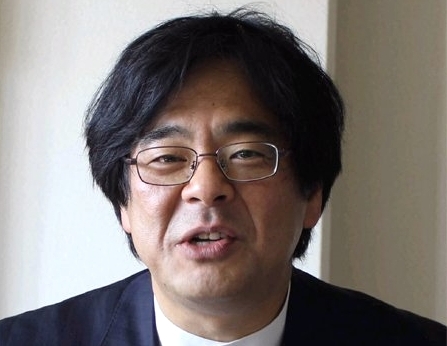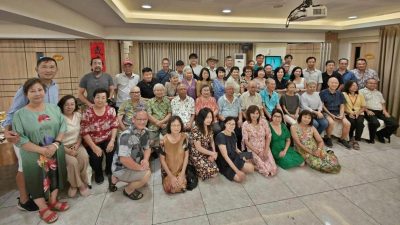
By Tadashi Kimiya
August each year is a season of history for both Japan and South Korea. This year has a different atmosphere from normal, as it comes right in the middle of the COVID-19 crisis. In Japan, the 6th and 9th are the days when the atomic bombs were dropped on Hiroshima and Nagasaki, respectively, and the 15th is the anniversary of the end of the Second World War. Why is it the "end" of the war, and not "defeat" in war? Perhaps this is because the relief from the end of the war was greater than the sadness of defeat for many Japanese people. South Korea has some level of validity in their criticisms of Japan as the invaders and aggressors, but many Japanese civilians want to be understood as victims of the war.
For South Korea, August 15th is "National Liberation Day", and it is a day to celebrate South Korea's liberation from 35 years of Japanese rule. It is customary for the president to deliver a speech on "National Liberation Day" and, this year, President Moon Jae-in delivered his speech at the Dongdaemun Design Plaza in Seoul, rather than at the Independence Hall of Korea in Cheonan City, perhaps due to the COVID-19 crisis. There were many mentions of Japan-Korea relations, as well as North Korea-South Korea relations, and this year's speech attracted attention.
Regarding Japan-Korea relations, tensions are rising as measures requiring compensation from Japanese corporations, based on the decision of the South Korean Supreme Court, are imminent. Regarding North Korea-South Korea relations, while the Korean peace process was expected to progress smoothly through the 2018 Inter-Korean and North Korea-United States summits, relations have not only been delayed since 2019, but are even in a state of regression.
It was an extremely sonorous speech amidst the crisis where President Moon offered the strong commitment that politicians would protect human rights, such as the right to the pursuit of happiness, no matter what. On Japan-Korea relations, he toned down anti-Japanese criticisms similar to last year's speech, and demonstrated his intention to negotiate with the Japanese government on resolution measures that victims will accept, while also respecting the decision of the South Korean Supreme Court. However, an uncertain situation continues as to what compromises he is considering, as the disconnect remains large between the decision of the South Korean Supreme Court and the Japanese government's interpretation of the Agreement on the Settlement of Problems concerning Property and Claims and on Economic Co-operation between Japan and the Republic of Korea (the Agreement) from 1965. Can President Moon reconcile the decision of the South Korean Supreme Court, the Agreement, and acceptance by victims?
It seems that both the Japanese and South Korean governments might have already given up on compromise in a state where support of each administration is diving. There are some who feel that intensified tension between Japan and South Korea would allow for consolidation of support through the mobilization of foreign hard line arguments. The Japanese and Korean governments, together with the majority of public opinions, seem to think that this time, each is right, and that if the other party compromises then they themselves ought not compromise. Additionally, when looking at media reports from both countries, it seems that they are welcoming of the drop in support for the other's administration. However, it seems that a daring compromise becomes more and more impossible as support drops and the administrations are weakened. I want to believe that both the Japanese and Korean governments won't choose such a foolish option.
This is because there is no room to leave this kind of situation between Japan and South Korea as it is. Facing a further intensification of the United States-China conflict which is sure to exist even after COVID-19, can Japan and South Korea, caught in the middle of this conflict, mutually make appropriate choices having let their own conflict intensify without compromise?
On top of that, I want to have hope for the South Korean government's initiatives. This is not because the Japanese government's claims are more legitimate than the Korean government's claims. There is justice in both of their claims. Regardless, why South Korea? There are two reasons. First, it was the South Korean Supreme Court that presented a ruling that was different from the interpretation of the Agreement by the Japanese and Korean governments, and in that sense, it is South Korea that is trying to change the status quo. Second, when considering diplomacy under the intensified post-COVID United States-China conflict, it is South Korea that will have to face further difficulties. This is because South Korea needs Japan's cooperation more than Japan needs South Korea's.
Between the intensified United States-China conflict, there is no mistaking that Japan will be in trouble, but I think that Japan is determined that they must stick with the United States to some degree. I have, however, never thought that this was Japan's only choice. But South Korea's choice is not an easy one. They must avoid being forced into a test of loyalty by having to pick sides at all costs. South Korea's results achieved through diplomacy since its founding cannot be overstated no matter how they are evaluated. However, can South Korea really achieve this on its own? In particular, it will become more difficult given that it must face the North Korean problem, which requires cooperation from both the United States and China.
Looking at the Abe Administration and the post-Abe Administration, how will they get Japan involved in the Korean peace process? And how will they persuade the Japanese government and Japanese society? Will this diplomacy be sought after by the Moon Jae-in Administration? If it is, then the Japanese government and Japanese society ought to take it seriously.
(Tadashi Kimiya is Professor at the University of Tokyo, Japan.)
ADVERTISEMENT
ADVERTISEMENT


































